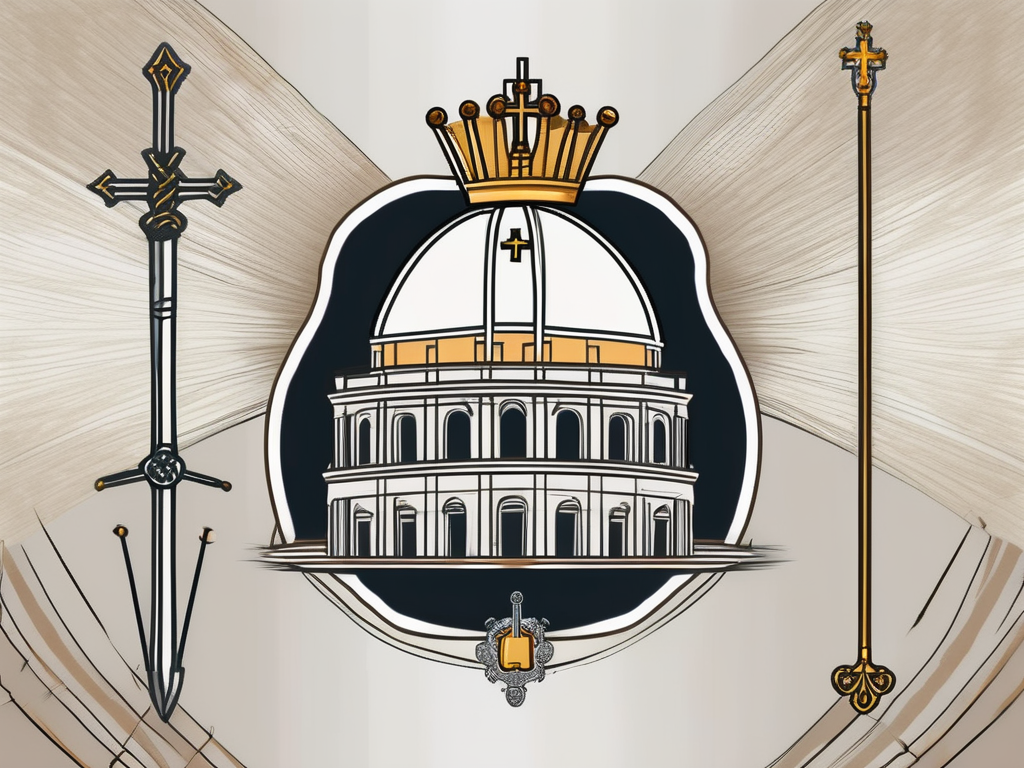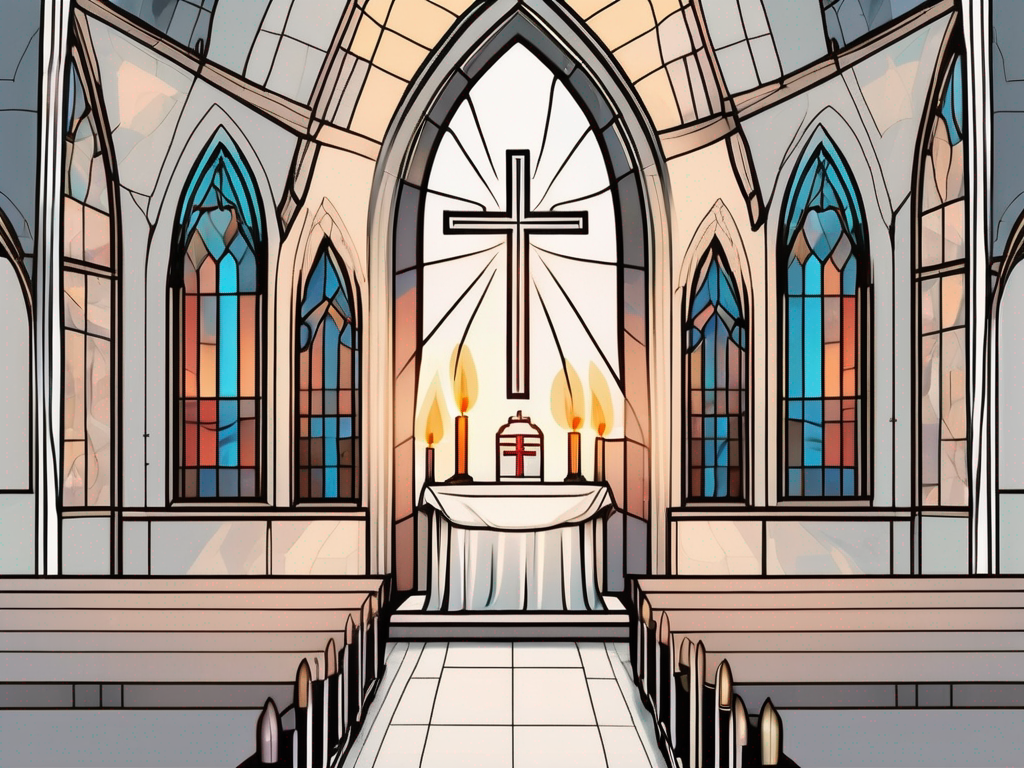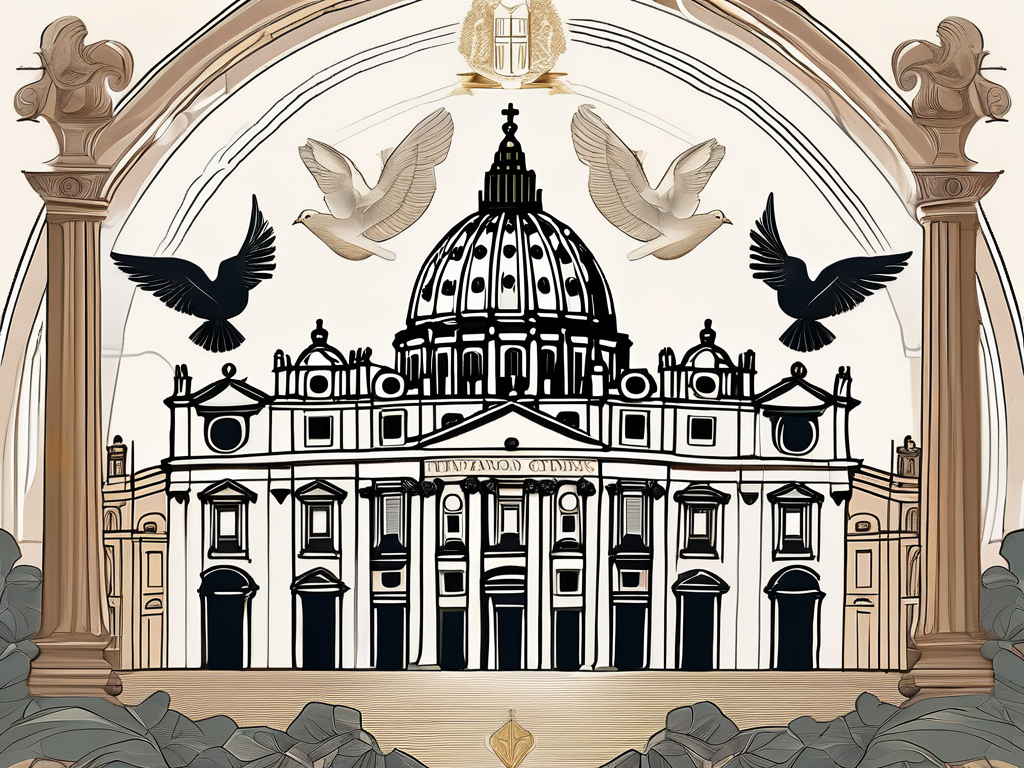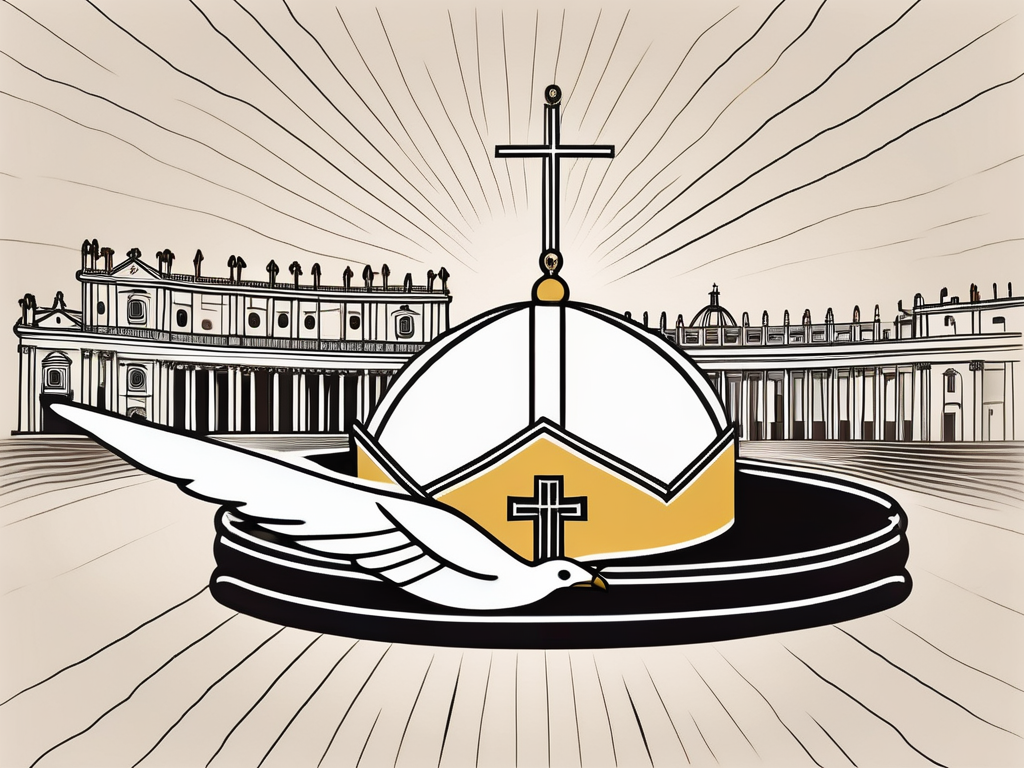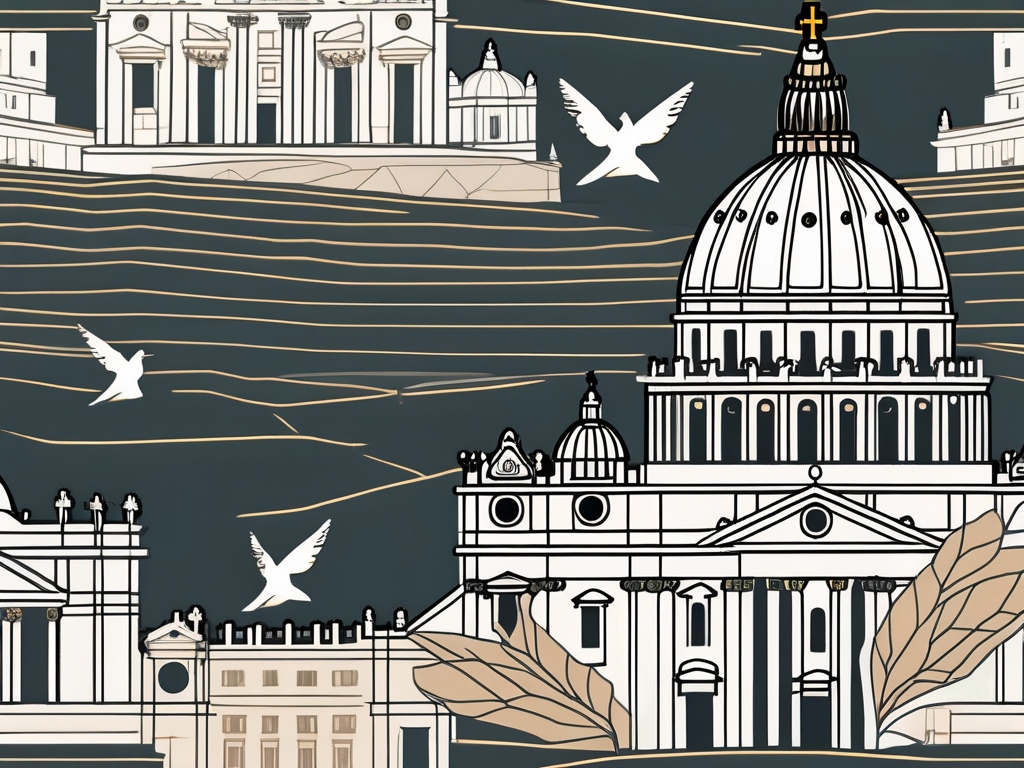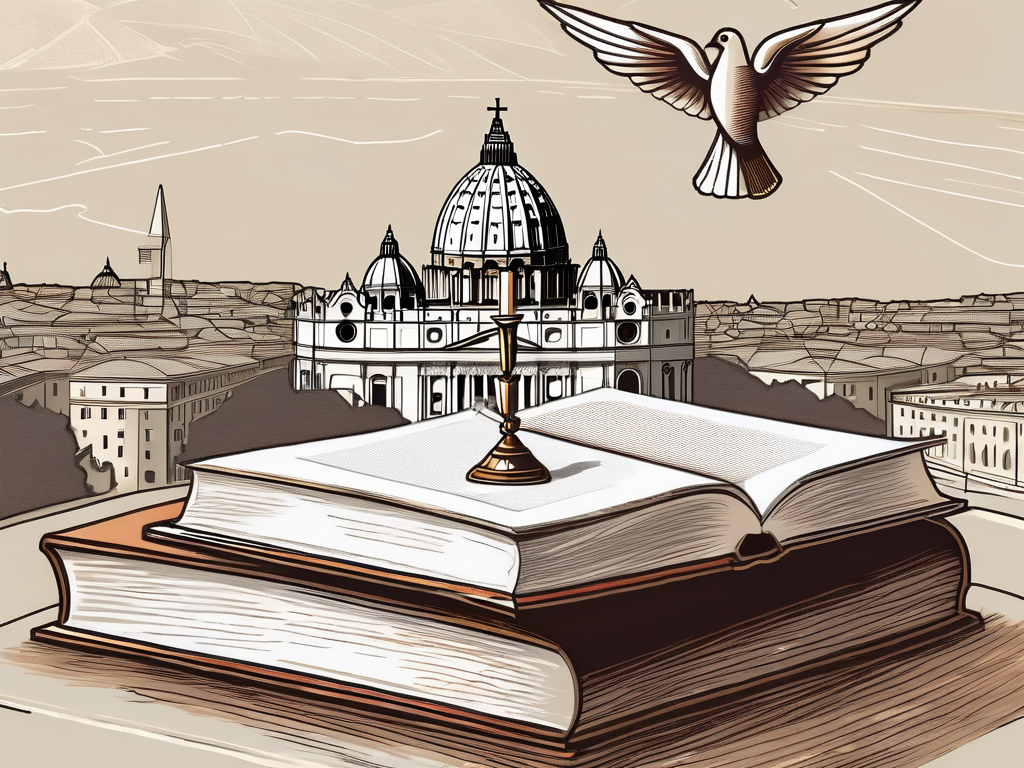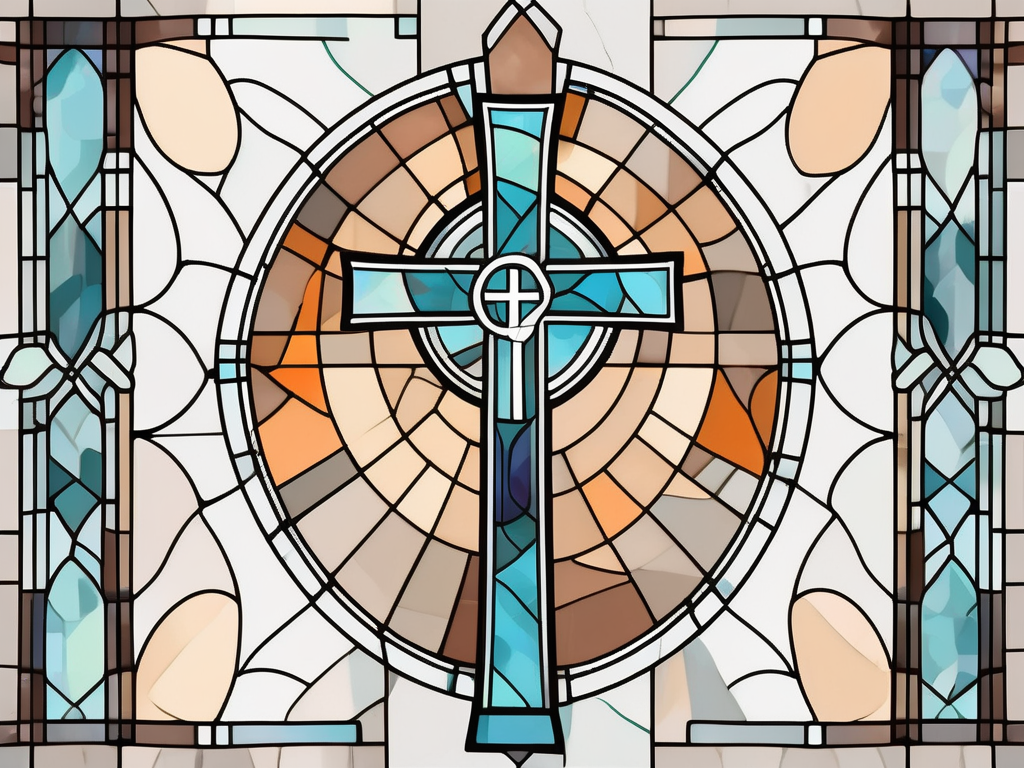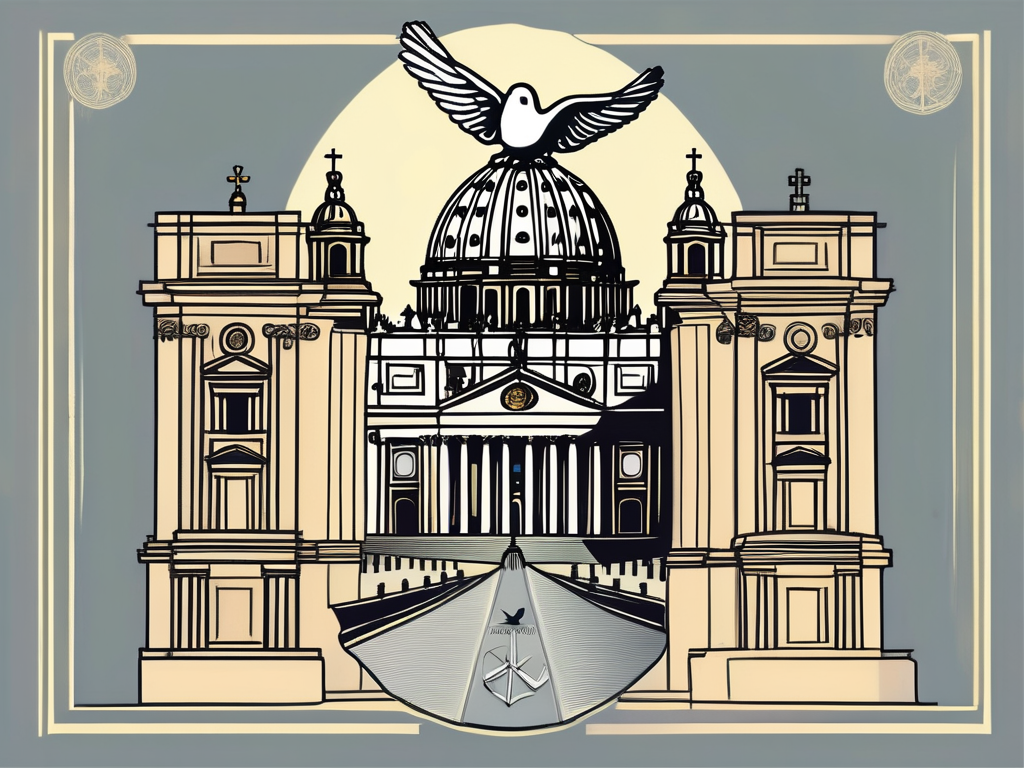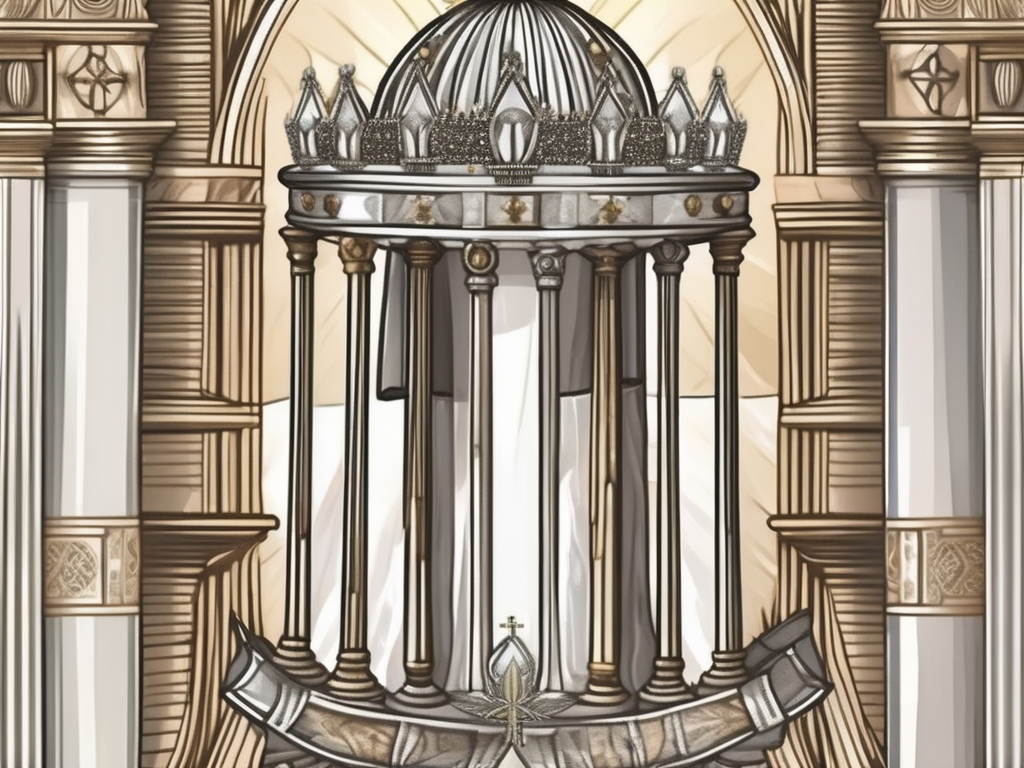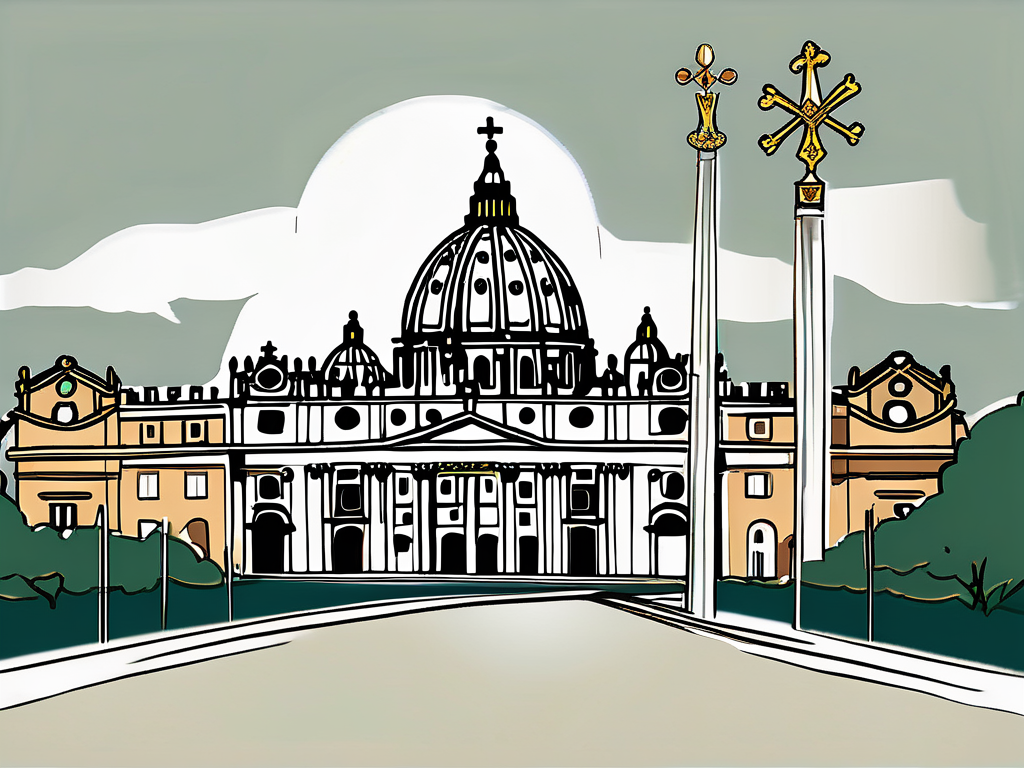In the history of the Catholic Church, there have been many influential popes who have shaped the course of Christianity. One such figure is Pope Gregory XI, whose life and legacy continue to inspire and provoke discussion even today. From his early years to his papal reign and eventual death, Gregory XI left an indelible mark on the Church and the world at large.
Early Life and Education of Pope Gregory XI
Born into a prominent family, Pope Gregory XI came from a long line of devout Catholics. His birth and family background played a crucial role in shaping his religious convictions and future path. The influence of his family’s strong faith and commitment to the Catholic Church was evident in every aspect of his upbringing.
From a young age, Gregory XI was surrounded by the teachings of the Church. His parents, deeply devoted to their faith, instilled in him a sense of reverence and respect for God. They taught him the importance of prayer, worship, and living a virtuous life. As he grew older, Gregory XI’s love for God deepened, and he felt a calling to dedicate his life to serving the Church.
Gregory XI’s religious education began early on, as he was enrolled in a prestigious Catholic school. Under the guidance of knowledgeable and dedicated teachers, he delved into the study of theology and philosophy. These subjects not only expanded his intellectual horizons but also provided a solid foundation for his future role as a spiritual leader.
During his studies, Gregory XI developed a profound understanding of the scriptures. He spent countless hours poring over ancient texts, seeking wisdom and insight. His thirst for knowledge was insatiable, and he eagerly engaged in debates and discussions with his peers, sharpening his theological acumen.
As Gregory XI entered adulthood, his passion for the Church led him to pursue a career in the clergy. He embarked on a journey of spiritual growth and service, guided by a dedicated mentor who recognized his potential. This mentor, an esteemed member of the clergy, took Gregory XI under his wing, nurturing his talents and encouraging him to explore his calling.
Under the mentor’s guidance, Gregory XI gained practical experience in various aspects of Church administration. He witnessed firsthand the challenges and responsibilities that came with leading a religious community. These experiences not only deepened his understanding of the Church’s inner workings but also prepared him for the weighty responsibilities he would later assume.
Throughout his early career, Gregory XI remained steadfast in his commitment to the Church. He dedicated himself to the study of canon law, becoming well-versed in the intricate legal framework that governed the Church’s operations. This expertise would prove invaluable in his future role as Pope, as he would be called upon to make important decisions and navigate complex issues.
As Gregory XI’s reputation grew, so did his influence within the Church. His wisdom, humility, and unwavering faith made him a respected figure among his peers. People sought his counsel and guidance, recognizing his deep understanding of theology and his genuine desire to serve others.
In conclusion, Pope Gregory XI’s early life and education laid the foundation for his future as a spiritual leader. His upbringing in a devout Catholic family, his religious education, and his early career experiences all shaped his character and prepared him for the immense responsibilities he would later assume as Pope.
Ascension to Papacy
Gregory XI’s journey to the papacy was a testament to his leadership qualities and unwavering faith. Following the death of his predecessor, he was elected as pope and underwent a grand papal coronation. This moment marked the beginning of his papal reign, which was not without its challenges.
As he assumed the role of the leader of the Catholic Church, Gregory XI faced numerous obstacles that tested his resolve and determination. From internal strife within the Church to external pressures from secular authorities, his early years as pope demanded unwavering strength and resilience.
One of the major challenges Gregory XI faced was the ongoing conflict within the Church itself. The papacy had been marred by divisions and rivalries, with different factions vying for power and influence. Gregory XI, however, was determined to unite the Church under his leadership and restore its unity. He embarked on a series of reforms, aimed at addressing the issues that had plagued the Church for years. Through his strong leadership and diplomatic skills, he managed to bring about a sense of harmony and cohesion among the clergy and the faithful.
Externally, Gregory XI had to navigate the complex web of political alliances and rivalries that characterized the medieval world. Secular authorities often sought to exert their influence over the Church, and Gregory XI had to carefully balance their demands with the spiritual authority of the papacy. He skillfully negotiated with kings and emperors, ensuring that the Church’s independence and autonomy were preserved, while also maintaining peaceful relations with secular powers.
Furthermore, Gregory XI faced the challenge of addressing the growing discontent among the laity. The common people, burdened by heavy taxes and social inequality, were increasingly disillusioned with the Church’s wealth and perceived corruption. Gregory XI recognized the need for reform and embarked on a mission to address these concerns. He implemented measures to promote social justice, alleviate poverty, and improve the living conditions of the poor. His efforts earned him the respect and admiration of the common people, further strengthening his position as a leader.
Throughout his papal reign, Gregory XI demonstrated a deep commitment to the spiritual well-being of the Church and its followers. He tirelessly worked to promote the teachings of the Catholic faith, emphasizing the importance of piety and devotion. Under his guidance, the Church experienced a renewed sense of spiritual fervor, with an increased focus on prayer, worship, and religious education.
Gregory XI’s ascension to the papacy was not just a personal achievement, but a pivotal moment in the history of the Catholic Church. His leadership and determination paved the way for a period of stability and reform, setting the stage for future popes to continue the work he had started. As he embarked on his papal journey, Gregory XI left an indelible mark on the Church, leaving behind a legacy of faith, resilience, and unwavering commitment to the spiritual well-being of the faithful.
Major Contributions and Reforms
During his papacy, Pope Gregory XI made several significant contributions and implemented important reforms that shaped the course of the Catholic Church.
One of the most notable contributions of Pope Gregory XI was his pivotal role in addressing the issue of the Avignon Papacy. The Avignon Papacy, also known as the Babylonian Captivity, was a period when the papal seat was moved from Rome to Avignon, France. This relocation had caused a significant divide within the Church, leading to a loss of central authority and a sense of disunity among the faithful.
Recognizing the importance of restoring the papacy to its rightful place in Rome, Pope Gregory XI embarked on a mission to reunite the Church. With great courage and conviction, he worked tirelessly to convince the cardinals and the clergy to return to Rome. His efforts were met with resistance and challenges, but he persevered, knowing that the unity of the Church depended on the papal seat being in its original location.
Gregory XI’s determination and diplomatic skills eventually paid off, and in 1377, he successfully returned the papacy to Rome. This momentous event not only symbolized the restoration of the Church’s central authority but also marked a significant step towards healing the divisions that had plagued the Church during the Avignon Papacy.
Besides his efforts towards unity within the Church, Pope Gregory XI championed reforms that sought to address and rectify various moral and administrative issues. He understood that the Church needed to constantly evolve and adapt to the changing world around it, and his reforms reflected this understanding.
One of the key areas of reform that Gregory XI focused on was the moral conduct of the clergy. He recognized that some members of the clergy had become complacent or even corrupt, and this undermined the Church’s credibility and moral authority. To combat this, he implemented stricter guidelines for the behavior and ethics of the clergy, emphasizing the importance of leading by example and upholding the highest standards of integrity.
In addition to moral reforms, Pope Gregory XI also sought to address administrative issues within the Church. He recognized the need for greater transparency and accountability in the management of Church finances and properties. To achieve this, he implemented measures to ensure that the Church’s resources were used responsibly and for the benefit of the faithful.
Furthermore, Gregory XI was a strong advocate for education and intellectual development within the Church. He believed that a well-informed clergy was crucial for the effective spread of the Gospel and the guidance of the faithful. As such, he encouraged the establishment of schools and universities, providing opportunities for clergy members to receive a comprehensive education.
Pope Gregory XI’s contributions and reforms had a lasting impact on the Catholic Church. His unwavering commitment to unity, moral integrity, and administrative efficiency helped restore the Church’s central authority and strengthen its position in a changing world. His legacy serves as a reminder of the importance of leadership, reform, and adaptation in the ongoing mission of the Church.
Controversies and Conflicts
Like many influential figures, Gregory XI’s papacy was not without its controversies and conflicts. He found himself embroiled in disputes with secular authorities who sought to influence and control the Church’s affairs. Such clashes tested his diplomatic skills and ability to navigate treacherous political landscapes.
Furthermore, Gregory XI was confronted with the immense challenge of the Great Schism, an event that threatened to divide the Church. With a firm commitment to the unity of Christendom, he tirelessly sought to bring an end to this schism and restore peace within the Church.
Final Years and Death
In his final years, Pope Gregory XI faced declining health and numerous struggles. Despite these challenges, he remained dedicated to his papal duties and the welfare of the Church. With a deep sense of spirituality, he continued to carry out the final acts of his papacy, leaving a lasting legacy before his eventual passing.
Upon his death, the Church mourned the loss of a great leader and visionary. His successors would inherit a Church shaped by his contributions and reforms, forever indebted to the enduring legacy of Pope Gregory XI.
As we reflect on the life and legacy of Pope Gregory XI, we are reminded of the profound impact that one individual can have on the world. His unwavering faith, commitment to unity, and pursuit of reforms continue to inspire and challenge us in our own spiritual journeys. Gregory XI’s imprint on the Catholic Church serves as a timeless reminder of the power of leadership and the lasting influence of those who dare to forge their own path.
